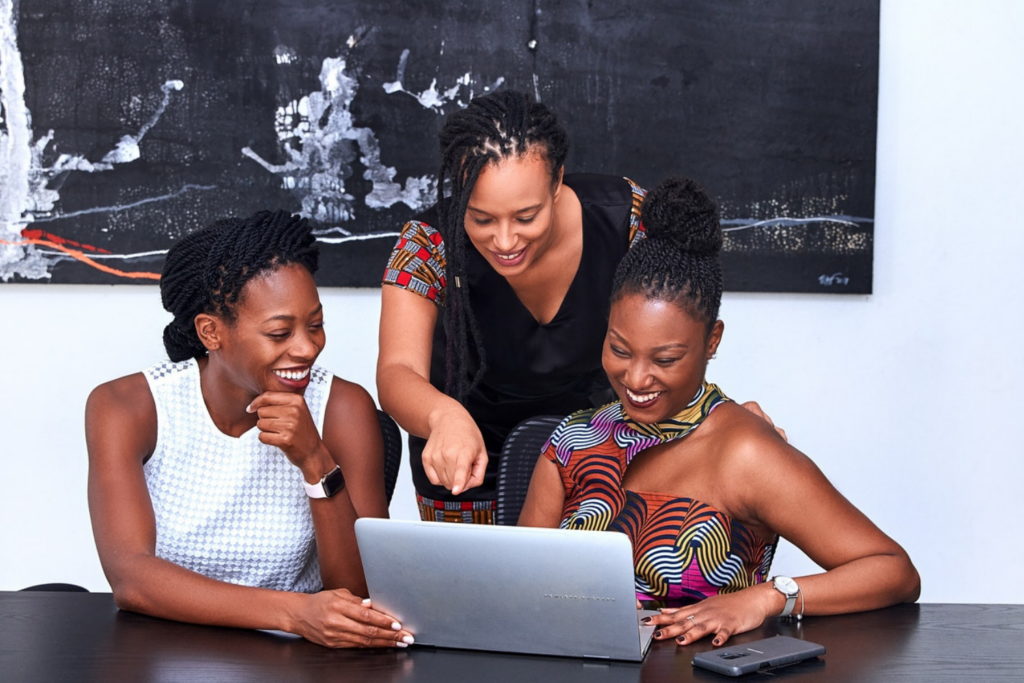The British Deputy High Commissioner in Lagos, Ben Llewellyn-Jones, says the United Kingdom has supported over 16,000 women and girls in Nigeria through the UK-Nigeria Tech Hub.
Llewellyn-Jones, represented by Kris Camponi, Head of Prosperity at the Deputy High Commissioner office, made this known on Wednesday, in Lagos, during a career workshop for young women in tech.
The workshop, organised to mark the 2022 International Day of the Girl Child, was themed “Digital Generation, Our Generation” and had female students from Lagos State University (LASU), Covenant University and YABATECH in attendance.
The envoy said that the Digital Access Programme (DAP) had supported over 16,000 women and girls with in-demand basic to intermediary employable digital skills in Nigeria
He said that DAP had also supported the growth of local digital economies in Nigeria, implemented through the UK Nigeria Tech Hub which provided scholarships for advanced digital skills development.
Llewellyn-Jones said that the United Kingdom was a global leader in education and strongly believed that education was crucial to leveling up across the globe
He said the UK remained committed to improving access to high-quality education across Africa.
This, according to him, includes prioritising education for girls all too often denied their right to learn.
He said educating girls must be a top priority because they’re often left behind.
“Women and girls represent half of the world’s population and therefore, half of its potential, but significant gender inequality persists globally and holds back progress in many countries.”
He stressed that the UK, and its network of allies, would not stand by, adding that it was the time to come together and take action to deliver a fairer, more accessible world.
“Protecting and promoting freedoms for women and girls in the UK and around the world is the right and smart thing to do – it is integral to creating resilient economies and strong, free societies.
“The UK has prioritised action guided by the 3Es: Educating Girls, Empowering Women and Ending Violence against women and girls.
“We are delivering humanitarian support for those in need, and getting more girls into school as one of the best ways to support economic development and tomorrow’s leaders,” he said.
In her remarks, the Founder of People Practice, Toun Tunde-Anjous, urged students at the workshop to take advantage of it.
Tunde-Anjous’ company, People Practice works with startups as they scale through people and culture initiatives and also works with job seekers and exposes them to relevant opportunities.
She urged young girls to position themselves for jobs by upscaling themselves as well as staying abreast of happenings in their space before going into the job market.
“If you’re going into tech, you can’t rely on just what you’ve learnt in school. You should have personal projects you’re working on and try to volunteer with organisations in the field you love,” she said.
While facilitating the Cybersecurity workshop, the Founder of Hacktales, Chikodili Udeh, emphasised the myriad of opportunities in cybersecurity, adding that it was effective in Nigeria’s financial and telecommunications sectors.
She, however, said sectors including E-commerce, law, and retail were not currently utilising it adequately.
Udeh urged young girls interested in cybersecurity to discover a niche first, then identify their path, adding that they needed to be passionate about security to excel in that field.
The News Agency of Nigeria (NAN) reports that the workshop focused on five areas — Cybersecurity, Digital Marketing, Product Management, Software Engineering, and Technological Entrepreneurship.
